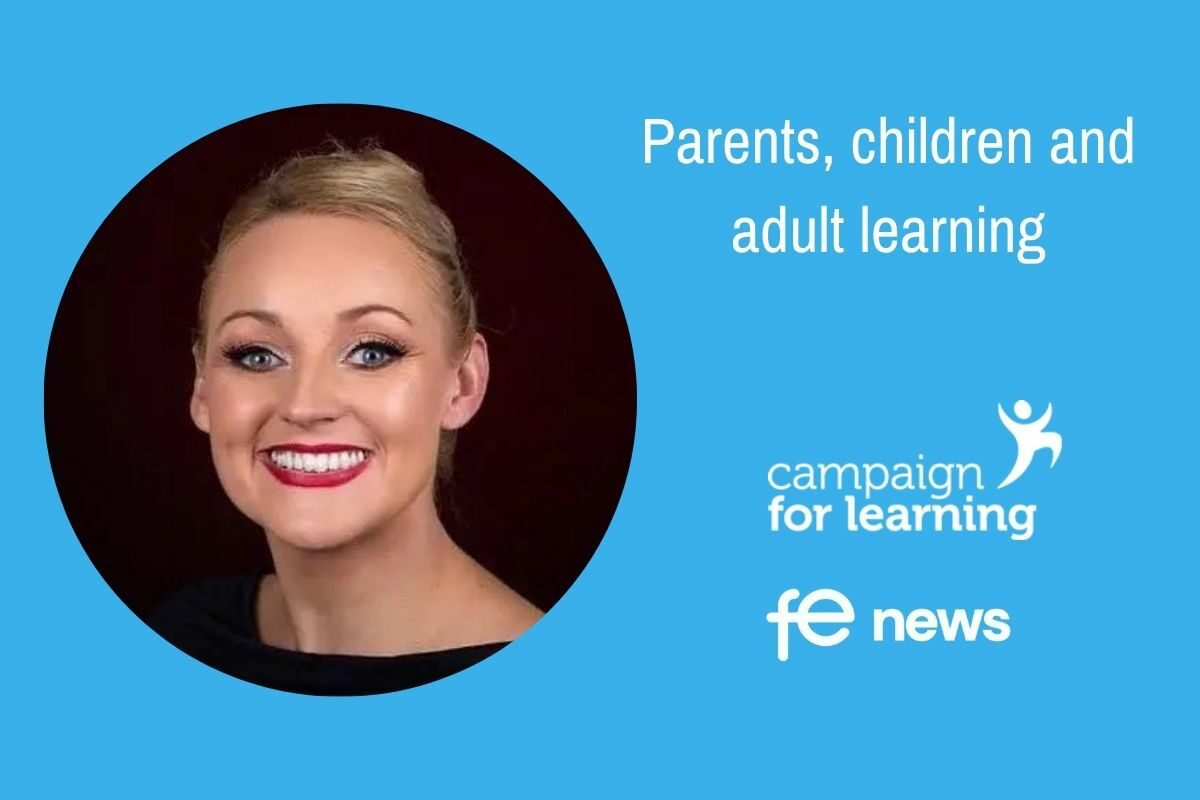Reminding Policy Makers of the Benefits of Parents and Children Learning Together

Family Learning is any activity where there are learning outcomes for both the children/ young people and parents/carers. This might be ‘synchronous’ learning between parents/ carers and children/young people. Or it may be ‘asynchronous’ learning where, for example, parents/carers learn strategies from teachers about techniques their children are taught in school, in order to better support learning in the home environment.
Benefits of Family Learning
A decade ago, the education department stated that “research shows that parental involvement in children’s learning is a key factor in improving children’s academic attainment and achievements, as well as their overall behaviour and attendance. The role of parents during a child’s earliest years is the single biggest influence on their development”(accessed March 2013.)
Similarly, Ofsted in 2009 found that wider benefits of Family Learning included “increased parental involvement in school life… improved parenting skills and… increased ability to manage their children’s behaviour, communicate with them and support their learning at home effectively” (Family Learning: An evaluation of the benefits of family learning for participants, their families and the wider community).
Covid-19 and Family Learning
The value of investing in strengthening the home learning environment (HLE) has never been more evident than during the Covid-19 pandemic with school closures resulting in a requirement for children to learn at home.
Family Learning can help futureproof our education system by providing an infrastructure ensuring continuity of engagement in education at home in the event of future school closures. This extends well beyond materials created through Oak Academy during the pandemic and is richer pedagogically through empowering parents/carers to be their children’s learning guides.
An article on the UK Parliament website describes a decrease in demand for Early Childhood Education & Care places since the Covid-19 pandemic. Alongside the greater prevalence of homeworking since the pandemic, this means children from infancy are having more contact in the home for longer with their parents/carers. This creates greater opportunities for families to enjoy positive experiences of learning at home together.
An Underutilised Dimension of Adult Learning
Family Learning is a hugely underutilised dimension of adult learning. It provides high- impact and low-cost return on investment through providing tandem benefit for parents/ carers and children intergenerationally as they both achieve learning outcomes.
Investment in Family Learning systemically also supports parents’/carers’ employability skills and the economy as it has a successful track record of creating progression pathways to other types of learning provision, helping them develop their Skills for Life and build confidence to access employment.
This is why it is especially important in the current times where families face an increase in the cost of living, a range of careers that are as yet unknown and huge skills gaps in essential sectors for novel learning pathways to be created enabling agile progression through unconventional routes.
Skills and Employment Benefits to Adults of Family Learning
There are opportunities for parents/carers and their children to follow programmes of learning together that enable them to re/train and gain employment in new sectors they have previously not explored, assisting with the national effort to address skills gaps in key sectors such as health and construction.
Parents/carers are uniquely positioned in the vast majority of families to support their children’s education and lifelong learning. Through modelling behaviours from as early as infancy, parents/carers can demonstrate a love of learning that can shape a child’s engagement on their own learning pathway.
Family Learning is particularly powerful in supporting those families facing disadvantage where research evidence shows Family Learning is particularly effective in helping to close the education gap and enable pupils to ‘level up’. This model of skills development also motivates parents/carers to progress in their own learning and skills development through the learning journey they share with their children.
The research indicates that Family Learning is more important than any purely child-focused support/intervention that schools, academies or nurseries might offer. It offers great potential for improved home-school communication and better outcomes for children and young people. A parent/carer is their child’s first and most important educator.
However, for some parents/carers, developing their confidence to support their child can be challenging, particularly if they struggle with their own numeracy, language and literacy skills. Family Learning is at the heart of unlocking this potential.
Creating future generations of lifelong learners who feel equipped with Skills for Life, enabling them to feel socially included and thriving irrespective of disadvantage, will require systemic investment in Family Learning provision.
This also requires collaboration between adult learning providers and school settings to leverage existing Family Learning provision and expertise and reimagine its application and audience reach.
Family Learning must be made available to all school-aged pupils and parents/carers, irrespective of the postcode they live in and their income.
Recommendation 1
The Government must ensure investment in Family Learning provision is ringfenced in a single identified government department so that the unique value of Family Learning can be clearly communicated and not deprioritised in the broader adult learning funding.
Recommendation 2
The Government must require all school settings from nursery through to secondary to actively engage with their local adult learning providers to offer Family Learning to their pupils and their families.
Recommendation 3
The Government must broaden the eligibility criteria for those who can access Family Learning provision free of charge as disadvantage is not always directly related to financial prosperity and this provision supports building social cohesion.
By Susannah Chambers, Independent Consultant
Read Campaign for Learning‘s press release here.
Parents, Children and Adult Learning: Family Learning Policy in the 2020s
Read previous articles here:
- Driving-Up Parental Engagement in Educational Catch-Up, Sam Freedman, Research Fellow, Institute for Government
- Focusing on Parents to Improve Social Mobility, Lee Elliot-Major, Professor of Social Mobility, University of Exeter
- Encouraging Parental Involvement in Children’s Learning Through School Communication, Adrian Burt, Founder, MarvellousMe
- Balancing Parental Support and Independence of 16-18 Year Olds in Further Education, Noni Csogor, Research and Policy Manager, Sixth Form Colleges Association
- Involving Parents and Guardians in Careers Support for 11-18 Year-Olds, Lesley Thain, Head of Career Programmes, Gatsby Foundation
- Enabling Parents to Get What They Need to Support Children to Learn, Kerry-Jane Packman, Executive Director, Parentkind
- Working with Parents in the Early Years to Get More Children School Ready, Louise Bazalgette, Deputy Director, Nesta
- Using Technology to Help Parents Bridge the Gap in Child Learning, Tom Harbour, Chief Executive, Learning with Parents
- Targeting Support at Carers to Improve the Educational Outcomes for Children in Care, Aoife O’Higgins , Director of Research, What Works for Children’s Social Care
- Supporting Parents to Build Children’s Financial Capability, Sarah Porretta, Insights Director, Money and Pensions Service
- Using Libraries to Support Literacy and Personal Development in Children and Young People, Christine Myhill, National Chair, ASCEL
- Enabling Parents and Children to Learn Together as Families, Katie Easey, Director of Education: Community Learning, WEA











Responses